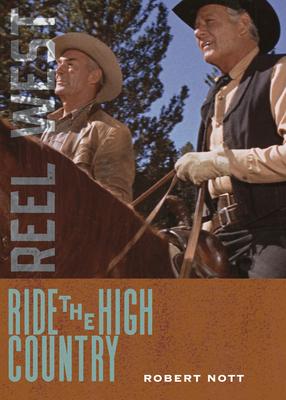Director Sam Peckinpah was just starting out when MGM released Ride the High Country in 1962. He was a new kind of director: young, brash, and in a hurry to help the Western "grow up" by treating it with adult themes. Ride the High Country was something new and different, a changing Western to match a changing West. Stars Randolph Scott and Joel McCrea were old hands at this sort of thing. Ride the High Country gave the two veteran actors one last job to do and a chance to go out with some dignity.
Ride the High Country helped the genre mature and adapt to turbulent, changing times. It launched Peckinpah's career by invoking the themes of honor, loyalty, and compromised ideals, the destruction of the West and its heroes, and the difficulty of doing right in an unjust world--themes developed to their pinnacle in Peckinpah's later masterpiece, The Wild Bunch.

Director Sam Peckinpah was just starting out when MGM released Ride the High Country in 1962. He was a new kind of director: young, brash, and in a hurry to help the Western "grow up" by treating it with adult themes. Ride the High Country was something new and different, a changing Western to match a changing West. Stars Randolph Scott and Joel McCrea were old hands at this sort of thing. Ride the High Country gave the two veteran actors one last job to do and a chance to go out with some dignity.
Ride the High Country helped the genre mature and adapt to turbulent, changing times. It launched Peckinpah's career by invoking the themes of honor, loyalty, and compromised ideals, the destruction of the West and its heroes, and the difficulty of doing right in an unjust world--themes developed to their pinnacle in Peckinpah's later masterpiece, The Wild Bunch.